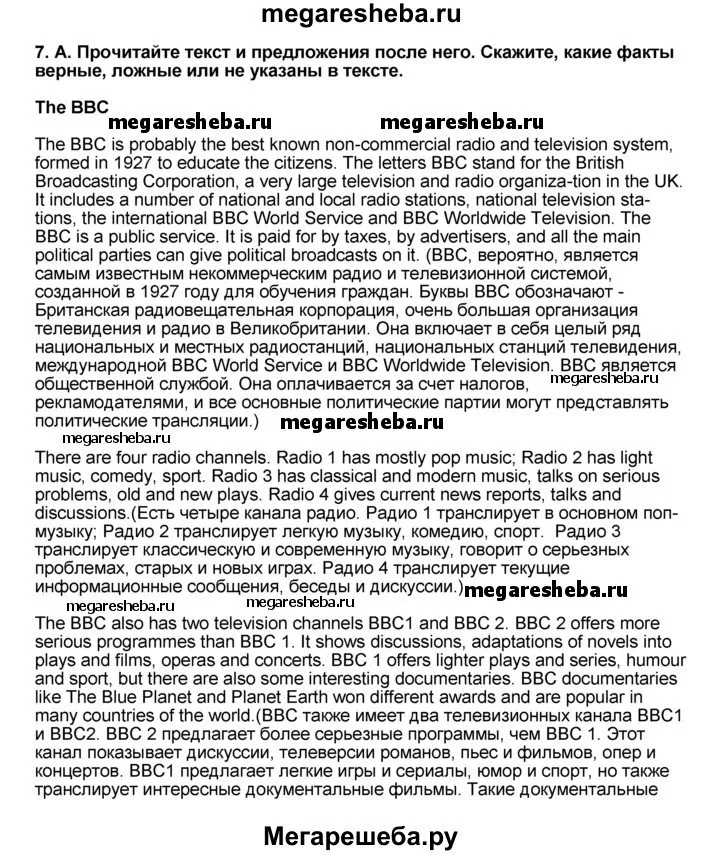Условие:
Read the text and the sentences after it. Say what facts are true, false or not stated in the text. The BBC The BBC is probably the best known non-commercial radio and television system, formed in 192to educate the citizens. The letters BBC stand for the British Broadcasting Corporation, a very large television and radio organization in the UK. It includes a number of national and local radio stations, national television stations, the international BBC World Service and BBC Worldwide Television. The BBC is a public service. It is paid for by taxes, by advertisers, and all the main political parties can give political broadcasts on it. There are four radio channels. Radio 1 has mostly pop music; Radio 2 has light music, comedy, sport. Radio 3 has classical and modern music, talks on serious problems, old and new plays. Radio 4 gives current news reports, talks and discussions. The BBC also has two television channels BBC 1 and BBC 2. BBC 2 offers more serious programmes than BBC 1. It shows discussions, adaptations of novels into plays and films, operas and concerts. BBC 1 offers lighter plays and series, humour and sport, but there are also some interesting documentaries. BBC documentaries like The Blue Planet and Planet Earth won different awards and are popular in many countries of the world. 1) The BBC was not organized to make money. 2) The BBC includes both radio and television. 3) The BBC has five national radio stations. 4) There are seven local TV stations in the UK. 5) The BBC works for the UK only. 6) The BBC is regularly used by the political parties. 7) All the radio channels specialize in different things. 8) To listen to serious music people turn on Radio 1. 9) You can hear talks and discussions on just one radio channel. 10) BBC 1 television channel presents less serious programmes than BBC 2. 11) BBC documentaries are shown worldwide. B. Listen to the same text then read it aloud. C. The marked words in the text may be new to you. Do you understand what they mean? What helped you to understand their meanings? D. Answer the questions about the BBC. 1) What do the letters BBC stand for? 2) When and why was the BBC formed? 3) What parts does the BBC consist of? 4) How do you understand the phrase “The BBC is a public service”? 5) How can the British political parties use the BBC? 6) Why do you think different radio and TV channels specializ in different programmes? 7) Which of the BBC radio and TV channels would you like to choose for yourself? 8) Have you ever watched any of the BBC documentaries? What impression did they make on you?Решение - 7 - Unit 1 Step 2:

